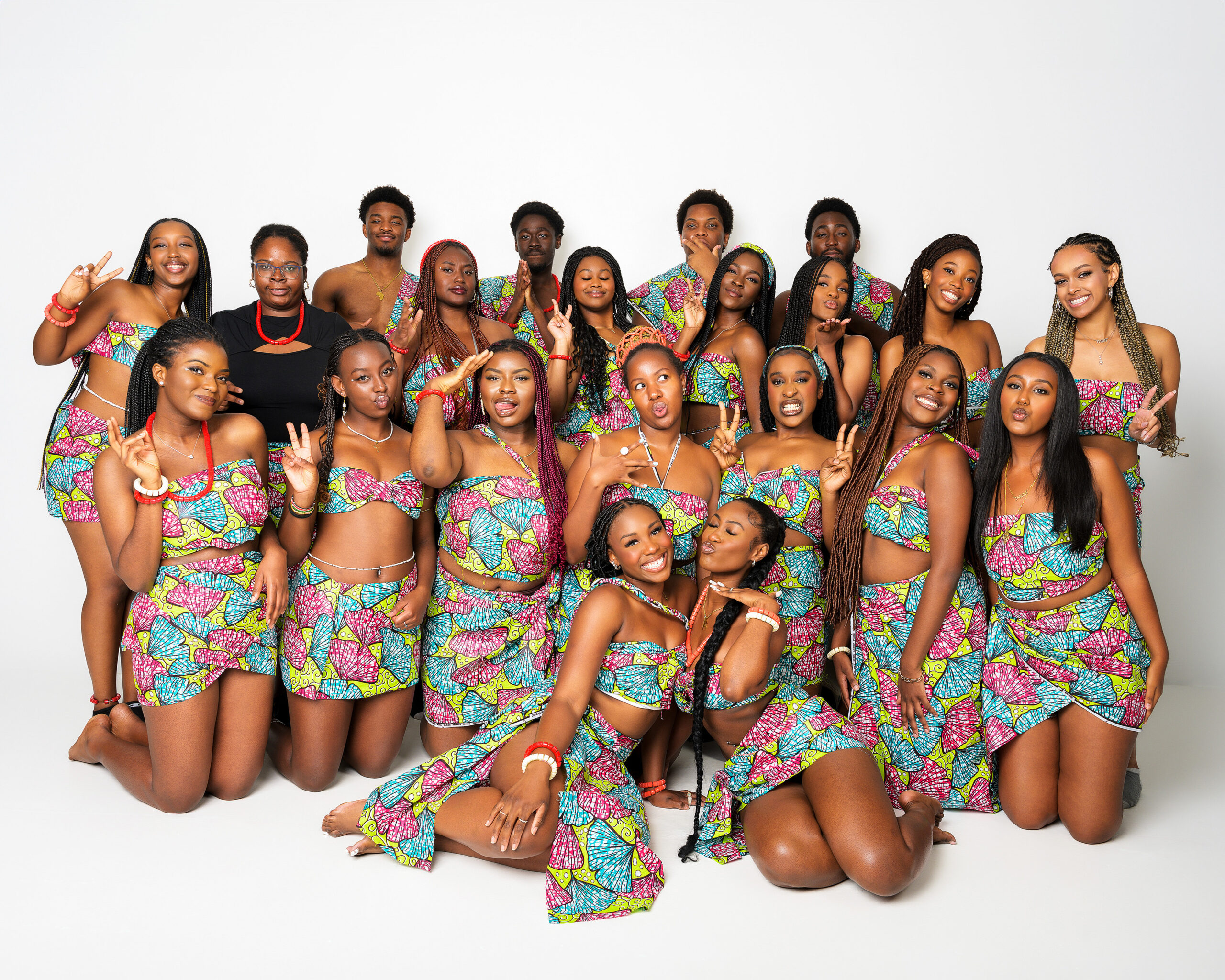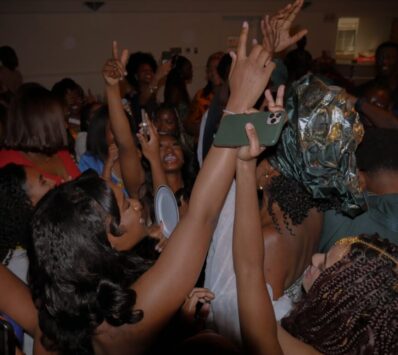Black Leadership on Campus: Sunday Ajak and The African Students’ Association
In celebration of Black History Month, we sat down with USC President Sunday and African Students’ Association’s Co-Presidents Keren and Ore to get an insider look into the tapestry of Black leadership on campus.
Navigating a predominantly White institution as a Black student comes with its challenges, creating a sense of complexity and isolation. Regrettably, the representation of minorities in prominent leadership roles on campus is notably limited. “Many of the challenges faced by our Black and African students at Western involve feelings of isolation, microaggressions or just a general sense of not feeling welcome or at home on campus,” Keren and Ore explained.
“Obviously systemic barriers exist, especially on campus. But I specifically faced a perception barrier when I was running for President. Being a visible minority, it’s shoved in my face that I am Black. Of course I’m Black. But then to put yourself in an election with 35,000 students being voters, there is very little that you can do to adequately affect everyone else’s perception of you,” said Sunday. In Western’s 60 year history, there have only been three Black USC presidents to date, Sunday included.

Students from BIPOC backgrounds, particularly Black students, are frequently not adequately represented in Predominantly White Institutions. The absence of diversity in student leadership positions perpetuates marginalization and ostracization.
In Sunday’s case, representation proved to be a catalyst for inspiring change and fostering optimism in upcoming generations.“I was lucky enough to briefly witness the outgoing president Tobi Salebo in 2017. He was the 2nd Black president of the USC. And for me, Tobi didn’t make a new initiative. He didn’t make a new service that was targeted to Black students. He didn’t do all that. He just was there. And that affected me years later. So now I’m here,” said Sunday. “Representation is about the incremental work we must do for future leaders to come. Representation is mandatory. It’s about inspiring the next generation for me. It’s about being the representation for a first year student at Kings who is looking at the USC and thinking “Sunday’s doing that, I could probably do that too””.
For the ASA, it’s providing Black students the space and community needed to thrive and feel represented. “ASA works hard to address these issues by providing events and socials where Black students can engage with each other and have a safe space to exist in their Blackness,” the co-presidents explained.

Intersecting identities and leadership come together for Keren and Ore to create an experience for other Black students on campus who come from the same background as them. “I believe that the intersections between all aspects of my identity formulates my identity as a Black leader. The fact that I am a student in itself allows me to gain access into producing environments in which I can see other students thrive. By being both Black and African, there are not that many spaces on campus for myself, and other students like myself, to simply exist,” said Keren. “With this being said, the unspoken struggles allow me to lead from a place of relatability, in the sense that because I and others around me experience certain challenges when it comes to inclusivity, being co-president of a Black club allows me to better manage said challenges for those that come after me.”
Organizations like the ASA, Black Students’ Association, and Caribbean Students Organization play a crucial role in establishing a sense of community and representation for Black students within campus. Sunday found his initial sense of belonging and community by joining the BSA, making it the first club he became a part of. “It was at that moment, when I first joined BSA, where I met some of my closest friends for the next couple of years. And it’s in that club that I had probably the most fun I’ve ever had on campus.”

“One of the pillars of our club is to bring awareness to the beauty of Africa and African culture and allow students to be immersed in the traditions that come from the continent,” said ASA. The ASA endeavors to celebrate African and Black culture through various activities, including orchestrating a fake African wedding with a full bridal party, collaborating with the BSA and the Office of the EDI to create a dedicated Black student space in Weldon, and hosting numerous other initiatives. “Through showcasing our culture, we provide the campus community with a window into our world that many would never have access to otherwise. This not only raises cultural awareness but also encourages cultural appreciation,” they explain.
When it comes to advice for aspiring Black leaders, Sunday stresses that one must be their own representation. “Do as much work as you can to force yourself in those positions. And again, that’s not to say that there won’t be barriers that will probably prevent you from doing so. I had to force myself in a position like this to be able to make the change that I want to see. And I didn’t want to have to leave it to someone else to be that change,” he emphasized. “You have to remember that you’re changing the life of someone who’s going to come after you.”
Keren and Ore underscore the importance of networking and putting yourself out there. “One of the main reasons we were able to grow ASA this year was due to the many community and campus connections we made. Another piece of advice for anyone who hopes to be a club president or take on a leadership role would be to surround yourself with a strong support system. Being a leader is hard and can bring many trials and tribulations, so having people you can fall back on for support on those rough days is vital to your success.”
As Black History Month comes to a close, we must remember the importance of allyship. “Show your support, show face,” said Sunday. “It means so much to a lot of people and keep it going throughout your daily interactions even after February. I will be the 101st to echo the importance of Black History Month and the importance of just living it every single day.”





